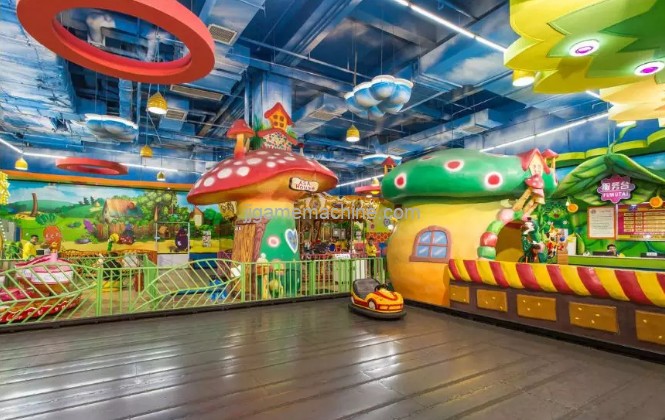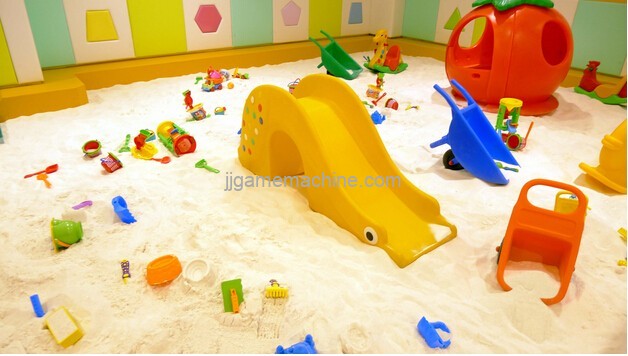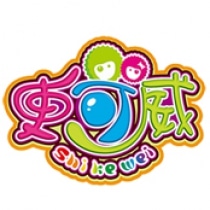There are many places worth exploring in the offline parent-child park. Before we analyzed the arcade industry and the existing problems in the offline kids club, take the example of the Yo-Yotang. It is indeed an excellent representative of the traditional kids club type. Part of the dilemma is the marginal cost problem that cannot be broken by the traditional kids club model. So, what is the new solution for the kids club?

“Flow Value Added Model”
Industry professionals with senior Internet and offline children's business experience believe that the way to break through the traditional model is to change the bottom of the career model of the children's paradise and completely transform the "ticket sales business" into a "flow value-added model".
Specifically, in the ticket sales business, the value contribution of consumers is single, only the purchase of tickets is only paid. Once the interest in the amusement park of the park is lost, the payment will end, and the commercial income of the park will inevitably decrease. In order to get more single-contributing consumers, it is inevitable to rent a good location. The vicious circle begins here, and the competition is the exhaustion of the consumer dividend (lot dividend).
The “flow value-added model” is a visible breakpoint, that is, the children’s park plays a natural advantage of attracting children and parents, defining the park as “flow portal” and defining consumers as “high-value traffic”. Through regular discounts, consumer autonomy, and other forms, we will expand our import flow and create high-quality word of mouth and trust through superior quality offline services to provide parents with more business services in addition to paradise.
Parents end up not only paying for tickets, but also paying for more yuan for goods or services, from "one purchase" to "multiple purchases."
But so far, the children's paradise industry has not yet had a successful head player. The specific reasons for not doing it are mainly these:
1. Entrepreneurs in the park industry have narrow visions and have been tied up for a long time by the “opening paradise-selling tickets” model. They are unwilling and afraid to learn more advanced business models;
2. The paradise industry lacks the business tools that conform to the Internet thinking. It is difficult to promote the industry upgrade simply by relying on the ability of the park operators. It is urgent to need the Internet to empower the children's parks and improve the profitability of the park operators;
3. The talent supply chain of the paradise industry is almost zero. The quality of the first-line practitioners is worrying. The management model and the employee incentive model are backward, and it is impossible to attract high-quality talents.

Multi-business combination innovation children's park format
Indeed, in the children's paradise in the flow of cash, for the segmentation of children's market demand, cross-border and multi-industry cooperation, such as IP, catering, etc., and based on the traditional paradise "consumer is a child rather than a parent" setting, Integrating parent-child interaction with parental social needs into the child's format is a new path worth trying. In addition to pure children's playgrounds, many parks also incorporate children's picture books, children's photography, children's education and training, parent-child restaurants, etc., combining multiple formats, interacting with each other, and actively streaming people to maximize benefits.
Taking early education as an example, the current offline early education brands include Mei Jim, New York Children's Club, etc. As a whole, domestic consumers prefer foreign early education brands, their good educational philosophy, scientific, complete and standardized infant education methods. And the system is the main reason for popularity. Therefore, the key to integrating early education into a children's paradise is to create professionalism, change the user's inherent perception, and provide users with more than expected quality services, thus generating more consumer transactions.
The potential for offline children's play and entertainment industry is huge, but innovation is always a scarce product. For practitioners, in the next industry development, how do children's park brands solve homogenization, improve their ability to resist risks, meet their needs, and adapt to their ability to continue to operate and build a moat. The essential.




